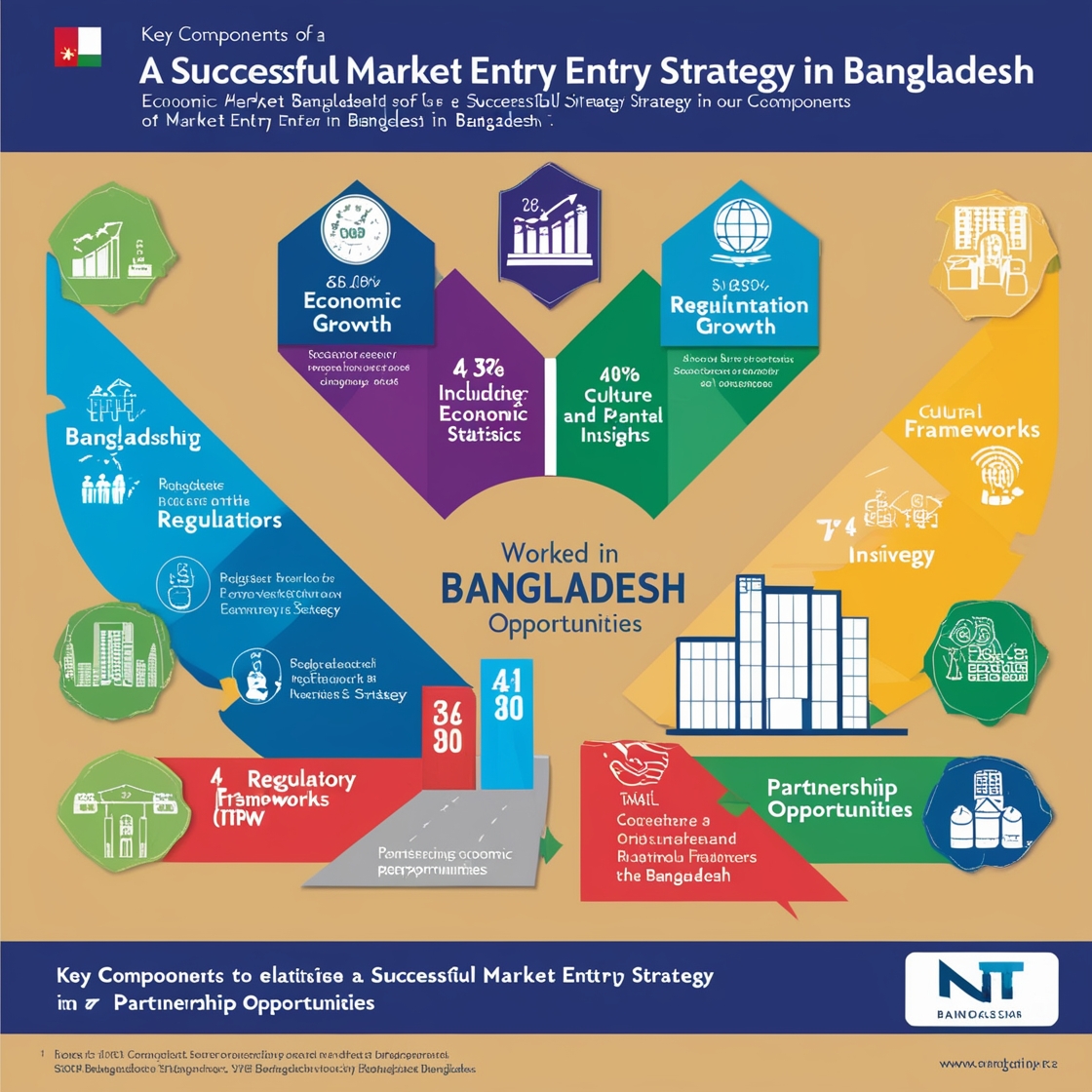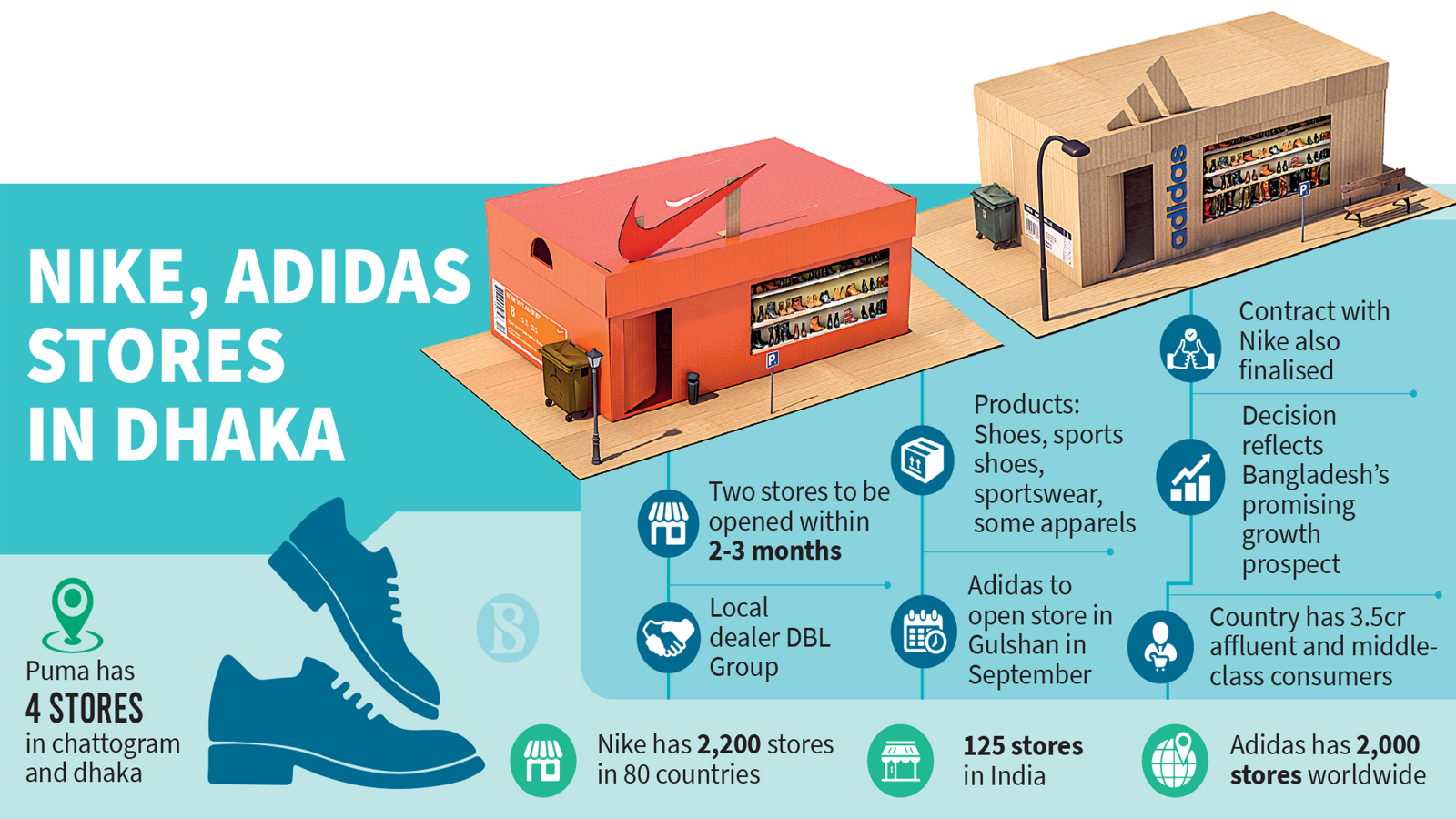
Entering a new market, particularly in a foreign context like Bangladesh, requires a holistic approach that considers various factors influencing success. With a population of over 160 million and a rapidly growing economy, Bangladesh presents significant opportunities for foreign companies. However, understanding the complexities of the local market is crucial for developing an effective entry strategy.
First and foremost, it’s essential to grasp the economic drivers shaping Bangladesh. The country has experienced consistent economic growth, averaging 6-6.5% annually over the past decade. This growth is driven by sectors such as textiles, agriculture, and services, making it an attractive destination for foreign investment. The government offers various incentives for foreign direct investment (FDI), including tax holidays and duty exemptions on imports for certain sectors. Understanding these economic drivers is essential for positioning your business effectively.
Equally important are the cultural nuances that influence consumer behavior in Bangladesh. The market is shaped by unique social dynamics where personal relationships play a vital role in business dealings. Building trust with local partners and customers is crucial for long-term success. Companies must adapt their marketing strategies to resonate with local values and preferences, which may differ significantly from those in their home countries.
Navigating the regulatory environment in Bangladesh can also be complex. Foreign companies must comply with local laws regarding business registration, taxation, labor regulations, and environmental standards. Engaging local legal experts can facilitate compliance and help avoid potential pitfalls associated with regulatory non-compliance.

For foreign companies looking to establish a presence in Bangladesh, market research and feasibility studies are essential tools. These processes help assess market demand, pricing sensitivity, and potential barriers to entry, providing a solid foundation for informed decision-making.According to the Bangladesh Bureau of Statistics, the country has witnessed a 6.94% GDP growth rate in recent years, indicating a robust economic environment. However, this diverse population has varying tastes and purchasing power influenced by cultural norms and economic conditions.
Feasibility studies complement market research by evaluating the practicality and viability of a business idea within the target market. These studies assess various dimensions, including financial requirements, operational capabilities, and regulatory compliance. A well-conducted feasibility study can help mitigate risks associated with new market entry by identifying potential challenges early on.In Bangladesh, feasibility studies often focus on several key areas:
To effectively conduct market research and feasibility studies in Bangladesh, it is beneficial to engage local consulting firms with expertise in the region. These firms possess valuable insights into consumer behavior, regulatory frameworks, and industry trends that can significantly enhance the quality of research conducted.

. In Bangladesh, local businesses are particularly receptive to joint ventures where the foreign partner supplies foreign exchange capital and technology, while the local partner contributes land, real estate, and an understanding of the domestic market. In H1 2024 alone, Bangladeshi startups raised USD 19 million across 22 deals despite facing a 57% decline from H1 2023 due to global funding slowdowns. However, local investments showed resilience with a notable 2.4x increase from Q1 to Q2 2024, indicating growing investor confidence in the market.
Additionally, sectors such as regulatory technology (regtech) are experiencing significant growth. The regtech industry in Bangladesh is projected to grow by 33.9% annually to reach approximately USD 151.63 million in 2024.
The process of forming a joint venture in Bangladesh typically involves several steps:
Successful examples of joint ventures in Bangladesh include collaborations such as A.K. Khan-Penfabric Company Limited, which focuses on textile production with Penfabric Malaysia, and TM International Bangladesh Ltd., a significant player in telecommunications.
Licensing is another viable strategy for foreign companies aiming to enter the Bangladeshi market. In this arrangement, a foreign company grants permission to a local firm to produce or sell its products under its brand name in exchange for royalties or fees. This approach allows businesses to expand their reach without incurring the costs associated with establishing a physical presence. The advantages of licensing include:
Franchising is similar to licensing but typically involves a more structured relationship where the franchisor provides a complete business model, including branding, training, and operational support. This model is particularly effective in sectors like food and beverage, retail, and hospitality.
In Bangladesh, franchising has gained traction as a means for foreign brands to enter the market while maintaining control over their brand image and operational standards. Successful franchises can benefit from:

In Bangladesh, export activities are governed by various policies and regulations, including the Export Policy 2021-2024 and guidelines set forth by the Bangladesh Bank. These regulations dictate the necessary documentation, compliance requirements, and procedures that must be followed to ensure successful exports.
For instance, according to the Export Policy 2021-2024, exporters must adhere to specific conditions regarding prohibited goods and conditional exports. Goods that are prohibited cannot be exported unless otherwise stated, while certain products may require fulfilling specific conditions before exportation. This policy framework is crucial for export agents to understand as it directly impacts their operations and the advice they provide to foreign clients.
Export agents must be well-versed in the documentation required for exporting goods from Bangladesh. Key documents include:
.
.
.
By acting as intermediaries, export agents streamline transactions between foreign companies and local buyers. They manage negotiations, logistics, and communication throughout the export process. This efficiency not only saves time but also reduces operational risks associated with entering a new market.
Export agents possess established relationships with local distributors, retailers, and customs officials. These connections are invaluable in overcoming barriers to entry and ensuring that products reach consumers efficiently. By leveraging these networks, export agents can help foreign companies navigate challenges that may arise during the export process.

Local public relations (PR) is crucial for businesses operating in Bangladesh, a rapidly growing economy characterized by a unique cultural landscape and dynamic market conditions.
Local PR is critical for several reasons:
At Shubhankar Consulting, we specialize in developing tailored local PR strategies that align with your business objectives. Here’s how we can assist you:

Stay up-to-date with the latest news and offers. Subscribe to our newsletter today!

Unleash your vision with our expertise. Together, we’ll transform your ideas into reality. Let’s embark on a collaborative journey to make your aspirations come to life.


Execute your Ideas, Even going Beyond the Limits.
Please use desktop view to have a better experience on the Website.
Let’s Discuss Business Now!